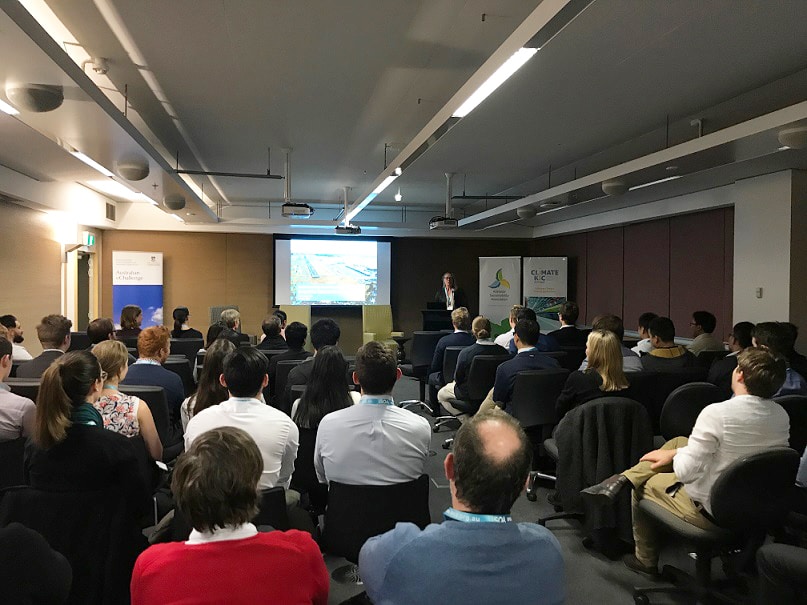Adelaide Industry Networking Event
Industry professionals and students joined one of the biggest IS Industry events in Adelaide to date. A special thanks to our hosts, The University of Adelaide’s ‘Entrepreneurship, Commercialisation and Innovation Centre’ (ECIC). The event was supported by the ECIC’s “Infrastructure and Sustainability” Winter School program with the cohort of 50 students joining the session. The Winter School program is the first undergraduate course to offer a five-day intensive with students able to pre-qualify as IS Accredited Professionals.
Stephanie Bolt, Sustainability Manager of Adelaide Airport provided an update on their Ops rating and included a showcase of the airport’s sustainability initiatives. These spanned a 1.2MW solar PV installation, autonomous vehicle feasibility, electric vehicle procurement, energy strategy development, waste to energy feasibility, treated stormwater connection to the Terminal 1 cooling towers, and airfield heat island research. Her presentation entitled “Comparing Airports with Airports” focused on the sustainability performance of Adelaide Airport and the role of the IS rating scheme in terms of providing robust nationally recognised benchmarks. Stephanie described some of the challenges encountered in developing and implementing the company’s carbon and climate adaptation, water resources, waste, biodiversity, air quality and noise management plans, whilst coordinating corporate sustainability benchmarking and reporting.
A Panel of subject matter experts facilitated by Dr. Charlie Hargroves provided their views relating to energy policy and the renewable energy market in SA. Cathy Chesson, a Senior Sustainability Consultant with Mott MacDonald provided a brief background of Ene-2 Renewable Energy Credit and shared practitioner’s perspectives on this IS Credit. Dialogue between Sally Cook (Principal Consultant, Energetics), Heather Smith (Changing Weather) and Stephanie Bolt extended to the practical application of the Ene-2 credit; the investment in renewables on a project scale, and exploring integrated opportunities to deliver value beyond project boundaries.

